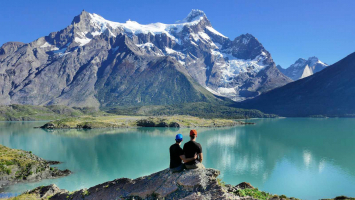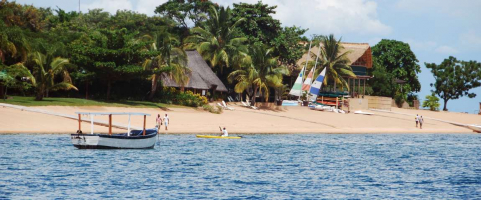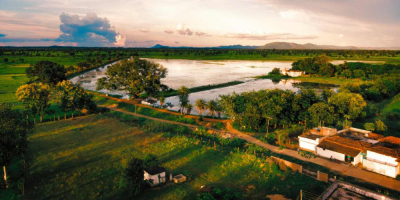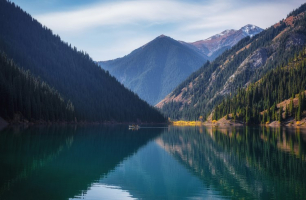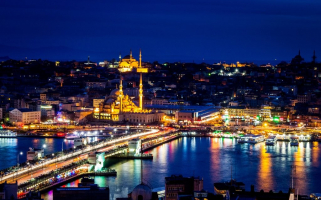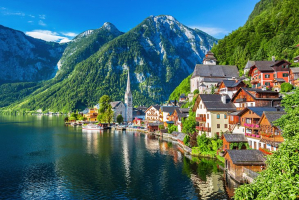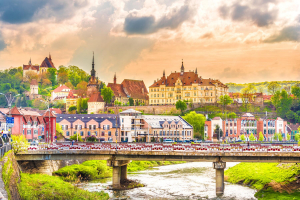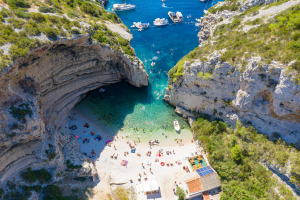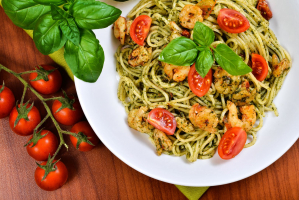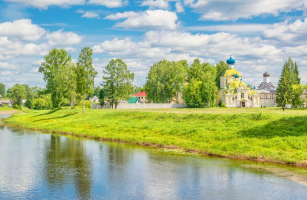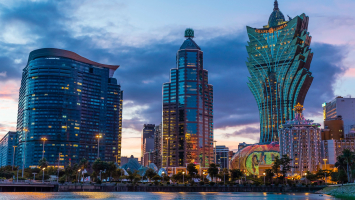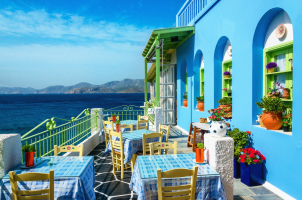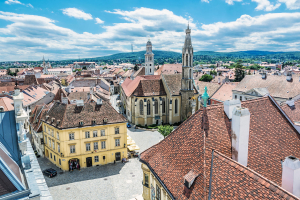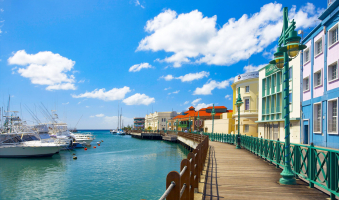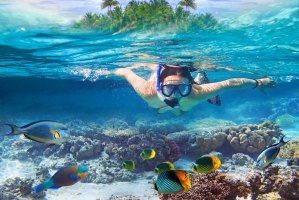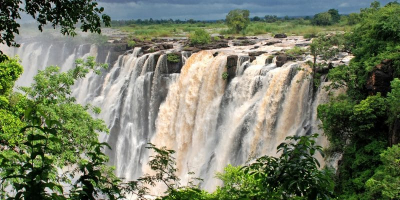Top 13 Things About Fiji You Should Know Before Visiting
Fiji is one of the most appealing Pacific islands to visit, as well as one of the most diversified. It's a great place for adventurers and beach bums alike who ... read more...want to spend hours soaking up the sun and taking in the sights. It is very easy to visit Fiji, and the islanders are eager to please. However, there are a few things to consider in terms of basic politeness, safety, and peace of mind. The most crucial things about Fiji you should know before visiting are listed below.
-
Several villages in Fiji require visitors to participate in a sevusevu before joining the community (gift-giving ritual). This means you can't go anyplace you want to investigate. When visiting a Fijian community, visitors are expected to provide a small gift. The village chief, known as the Turaga ni Koro, will greet you next and serve you kava to commemorate your arrival. This is one of the things about Fiji you should know before visiting.
A sevusevu is required even if you only wish to visit the village's attractive features, such as a waterfall or swimming hole. In Fiji's most isolated communities, walking into an unfamiliar town without a sevusevu is considered impolite and possibly trespassing.
Even if you merely plan to visit the village's picturesque sites, such as a waterfall or swimming hole, you will need to bring a sevusevu. Walking into an unfamiliar village without a sevusevu is sometimes considered rude and even trespassing, particularly in Fiji's more rural villages. Even when the Fijian guests visit for supper, they bring bread and butter or kava as a sevusevu.
When presenting your sevusevu, it is very advised that you dress modestly and avoid wearing anything on your head. Connect with one of the trusted Local Designers in Fiji if you don't want to deal with the logistics of multiple sevusevu ceremonies each day.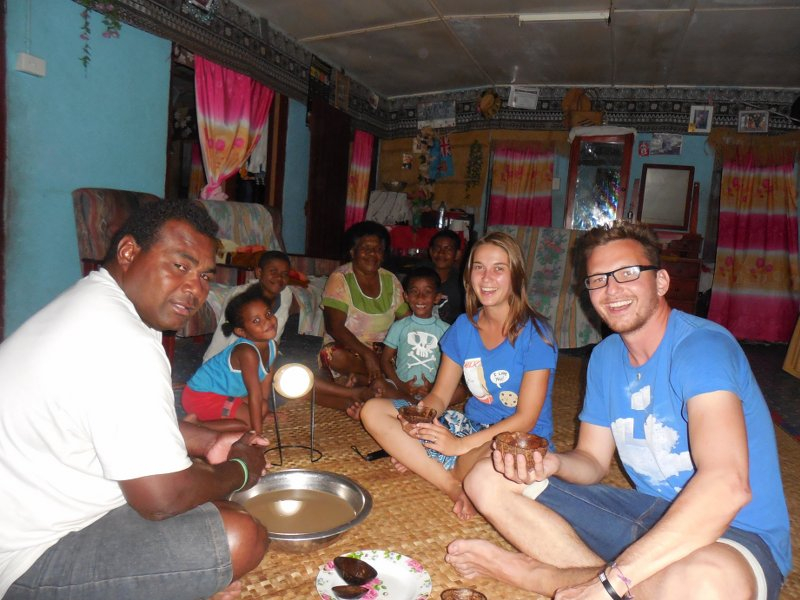
https://www.fiji-budget-vacations.com/ 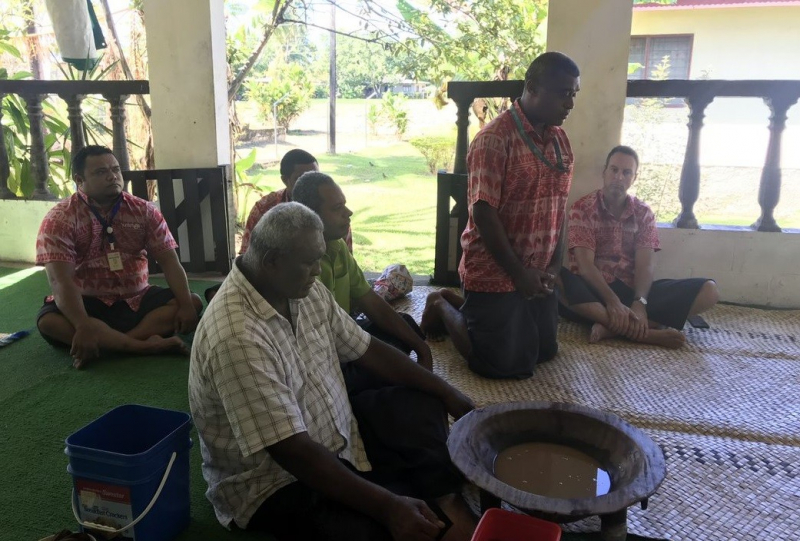
https://fhta.com.fj/ -
Fiji has recently returned to democracy, and tourism is growing, with an influx of tourists flocking to the palm-fringed islands for a taste of paradise. Fiji has a diverse tourism offering, ranging from honeymoon packages and relaxing beach days to extreme sports and several diving areas, and the country's economy is primarily reliant on foreign visitors.
Keep an eye on Antipodean school holidays when planning a trip to Fiji, as resorts and airlines tend to fill up and prices rise, especially during July, August, and Christmas vacations.
The weather of Fiji is divided into two seasons: hot and humid (November–April) and dry and pleasant (May–October). In general, the best time to visit Fiji is from mid-October to mid-November, when prices are lower and the weather is dry. Everything is calm and pleasant.
Another thing to keep in mind is that the southeastern part of Viti Levu receives significantly more rain than the rest of the island during the rainy season. Keep this in mind while you speak with the local designers in Fiji or browse the collection of fully customised Fiji trips.
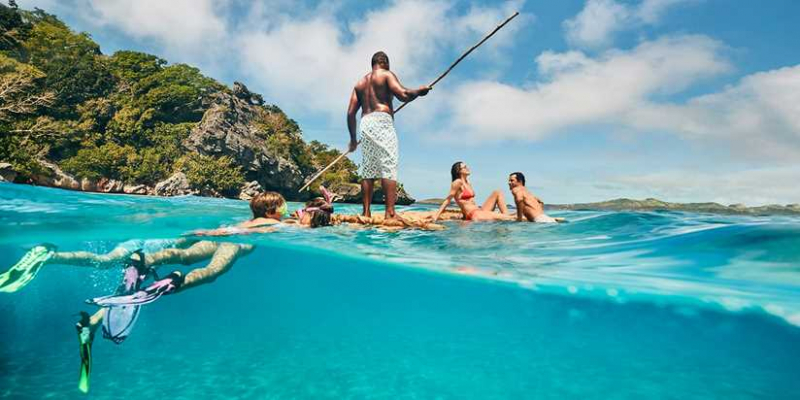
https://www.travelzoo.com/ 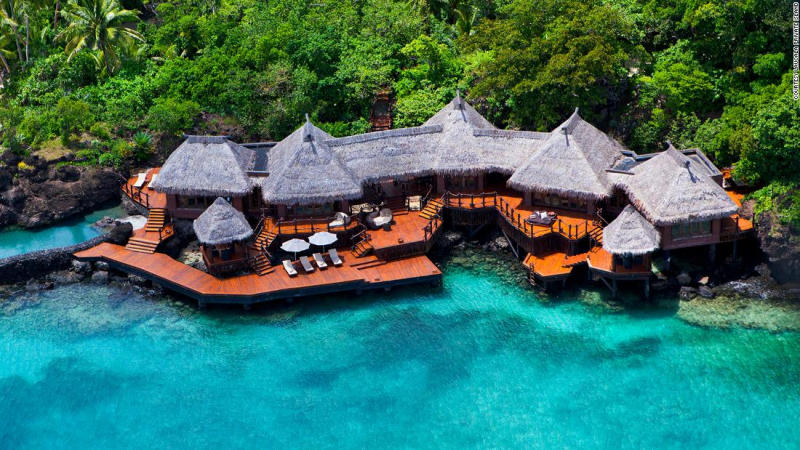
https://edition.cnn.com/ -
Fijians are the kindest and most welcome people you'll ever meet, and they'll gladly help you discover new and interesting local activities to make your Fiji vacation even more enjoyable. Despite the fact that English is the official language and that most Fijians can communicate in English to some level, you will hear bula and vinaka on a regular basis throughout your journey. This is one of the things about Fiji you should know before visiting.
Fiji's world-famous "Bula" is more than just a greeting. All parts of Fijian society are characterized by real kindness, compassion, and a cheerful outlook. Thank you is Vinaka. If you only learn two Fijian words, make them bula and vinaka, so you can enter as a visitor and leave as a friend who has truly experienced the bula spirit.
Locals are so proud of their heritage that your efforts to learn a few words will be much appreciated. It's also vital to try nonverbal interactions with natives. With only roughly 10,000 words in the Fijian language, communication is primarily reliant on body language and facial expressions - something to keep in mind when visiting Fiji! Immersing oneself in the cultural history through activities such as village tours and everyday experiences with residents, such as this Matamanoa Island trip, is one activity not to be missed.
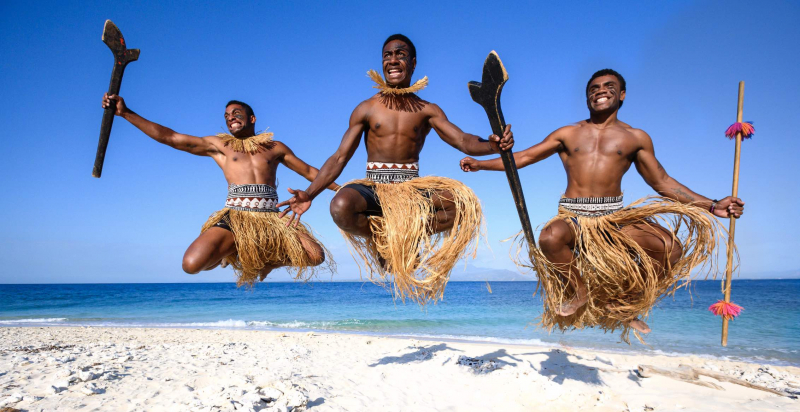
https://bluenotes.anz.com/ 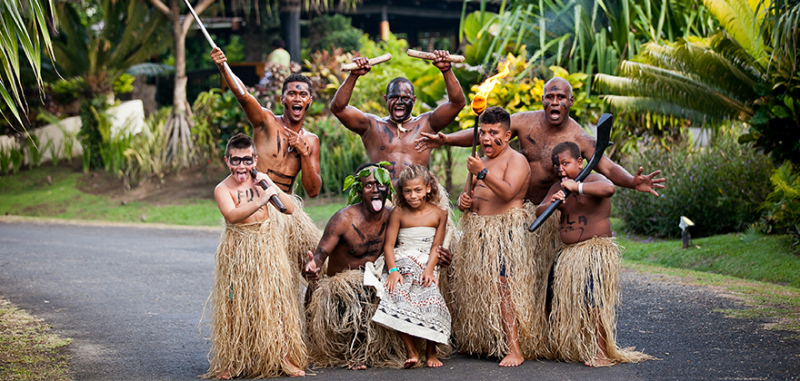
https://www.hootholidays.com.au/ -
Fiji is an archipelago of over 330 islands located in the Pacific Ocean's center. This tropical paradise is home to fascinating cultures and customs, and it was just voted one of the top ten luxury destinations in the world.
Although Fiji contains over 330 islands, only about 100 are inhabited. Because you'll most likely come via Viti Levu's Nadi Airport, most visitors are only familiar with the two major islands, Viti Levu and Vanua Levu. The Local Designers would recommend that you travel island hopping across several of the islands on your tailor-made Fiji trip to experience different islands.
Taveuni, in particular, is unlike any other island you've ever seen, with thick tropical woodlands covering 80% of the island. A journey around the island will take you to hidden waterfalls such as the Tavoro Falls and the Signtaga Sand Dunes near the Kulukulu village.
Who can forget Brooke Shields rising from the beautiful ocean after being shipwrecked in 'Blue Lagoon?' Did you know that a lot of the movie was shot on Turtle Island in the Yasawa? The Yasawas are well-known for having some of Fiji's most gorgeous beaches, whether you're a movie geek or just seeking for some fun and relaxation.Traveling by boat from one island to another is also quite simple. This 8-day Fiji journey will take you to the most picturesque parts of Mamanuca and Monuriki Islands, as well as filming locations.
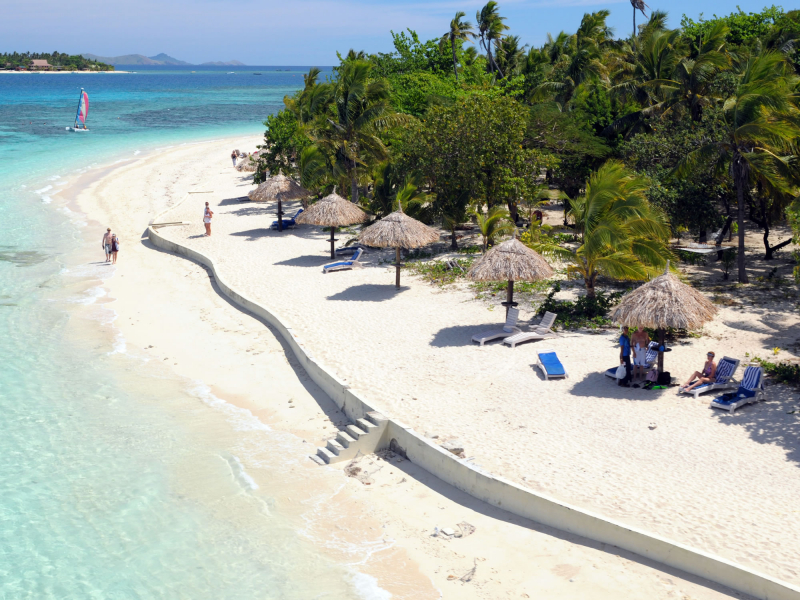
https://www.treasureisland-fiji.com/ 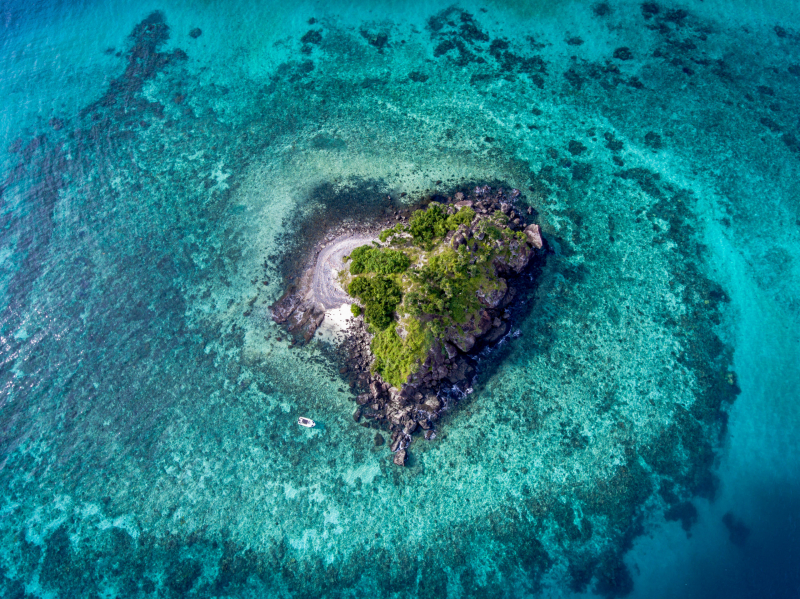
https://www.turtlefiji.com/ -
Don't miss a Kava ceremony if you want to have a truly authentic experience. This is one of the things about Fiji you should know before visiting. Kava is a root-based plant that is mashed into a drink and is thought to have calming properties. Kava rituals are held on the floor in a circle with everyone seated. The ceremony's leader–usually the village chief, the most senior Fijian, or the person hosting the kava ceremony–mixes kava with water to make the drink. A tanoa, or giant wooden bowl, is used to make the kava.
Clap once and drink the kava when the ceremony's leader hands you a bilo (a coconut shell cup). You should drink the bilo all at once rather than sipping it like a cocktail. Return the bilo, applause, and say "Bula" after that (good health). One bilo is sufficient for the entire group. When the ceremony's leader returns the bilo, everyone in the circle applauds three times.
Top tip: If you're unsure about Kava and only want to try a modest amount, ask the leader for "low tide." This tells the leader that you only want a small portion.
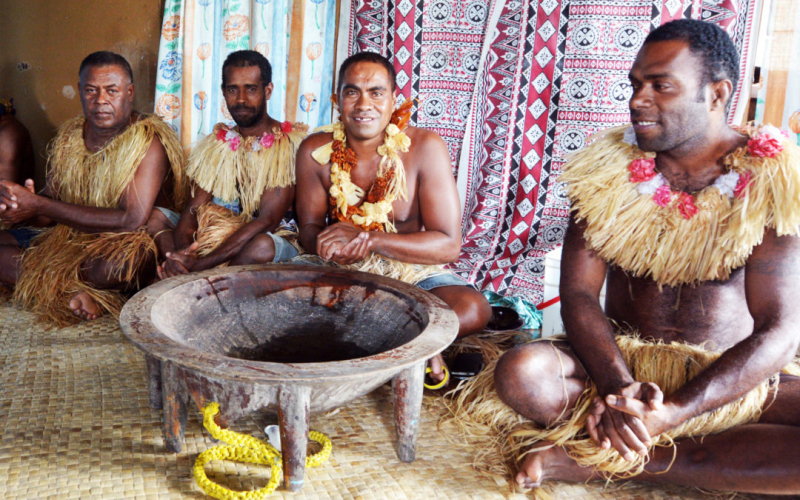
https://www.myfiji.com/ 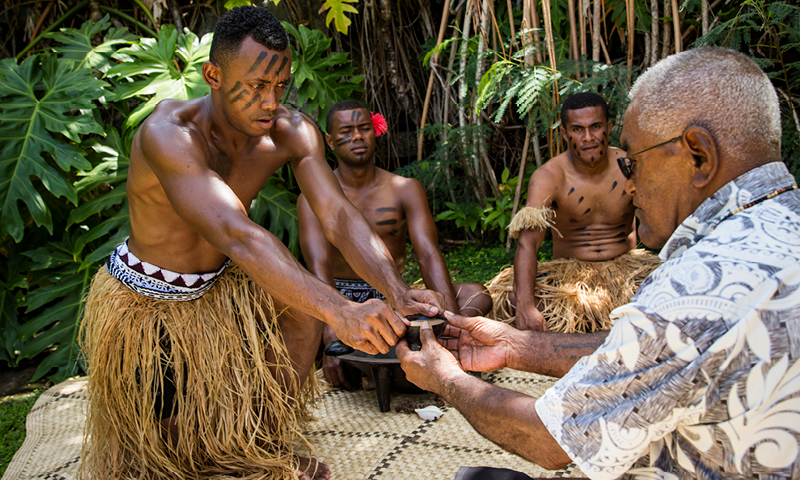
https://www.outrigger.com/ -
As an island nation, it's only natural that Fiji is environmentally sensitive. After all, rising water levels endanger many of the country's natural resources as well as people's livelihoods. Many resorts have played an important role in developing environmentally friendly tourism.
In the Yasawa and Mamanuca archipelagos (a popular island-hopping route), hotels are often small and run by locals. Other resorts only have electricity in the nights and use solar-powered water heaters. Many resorts in Fiji are also interested in marine conservation and work closely with experts to monitor the state of the ocean.
Snorkeling with reef sharks, for example, could contribute to this conservation effort while also allowing for important scientific research. This means you may learn about the unique biodiversity of the South Pacific while also participating in scientific studies that will aid local management of marine protected areas. Win-win!
If you enjoy diving, you may customize this trip to Mamanuca Island or create your own trip from start in Fiji! It's a diving paradise, with everything from pool breathing exercises to shipwreck diving, reef diving, and shark encounters. If you want to gain more experience initially, this Fiji diving trip will provide you with an excellent combination of snorkeling and diving. This is one of the things about Fiji you should know before visiting.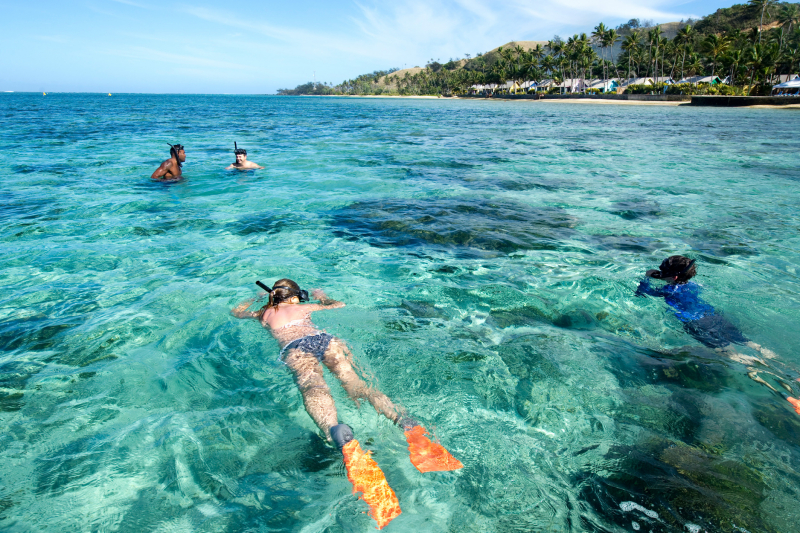
https://www.myfiji.com/ 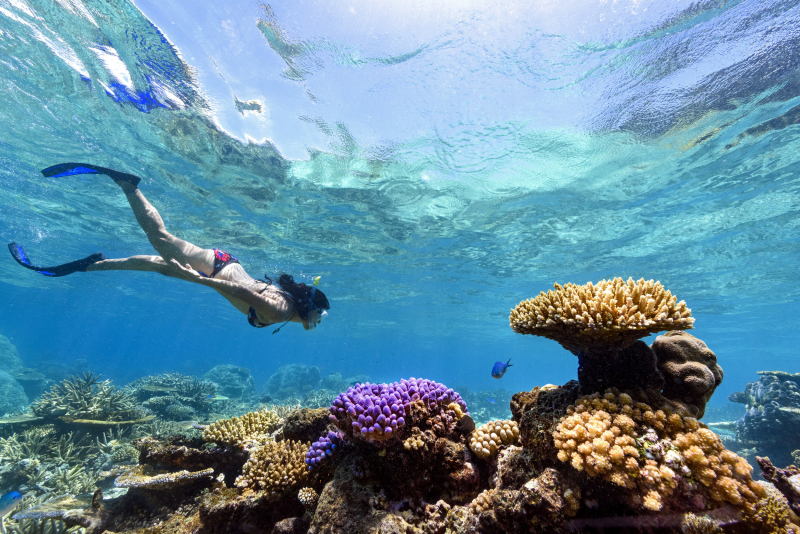
https://www.theremoteresort.com/ -
Even for budget-conscious travelers, Fiji remains an expensive destination to visit. There are usually only a few backpacker resorts per island if you want to island hop throughout Fiji's outer islands.
While many of these resorts entice visitors with affordable accommodation and dorm bed rates, you must also consider the expense of necessary meal plans, activities like scuba diving, and transportation to the secluded island. The Mamanuca and Yasawa Islands are famously pricey, and many resorts insist that you schedule your transportation via them.
Don't be fooled by a low hotel or bed fee; when you add all the extra charges, larger room rates can sometimes be cheaper. There are dorm rooms on the Mamanuca and Yasawa Islands, and despite the fact that some of them are named resorts, they are inexpensive in Fiji. Those of you who don't want to stay at a resort may check into other choices, such as local guest homes.
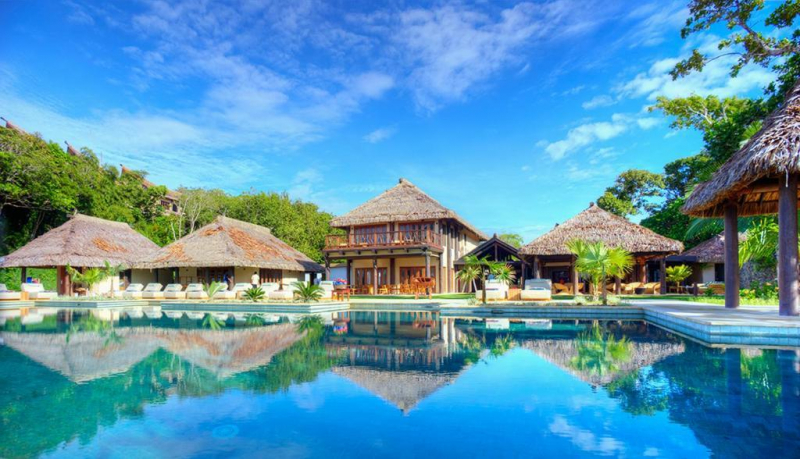
https://www.timeout.com/ 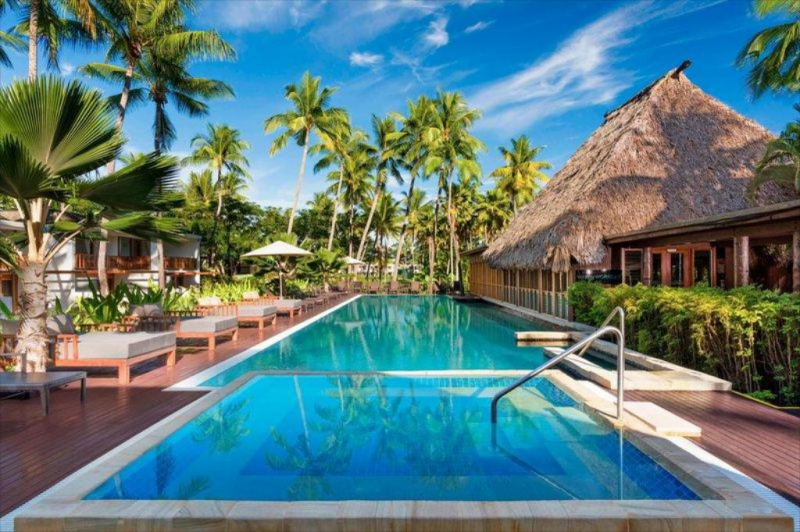
https://www.agoda.com/ -
Sundays are a day of relaxation in Fiji, which is one of the most crucial facts to know. Keep this in mind when putting together a jam-packed itinerary. Some tourist attractions will be closed and boats may not run. On Sundays, expect Fiji time in full swing, as most companies are closed and even our hotel employees have gone to church.
Alternatively, simply inquire if you are welcome to attend a local church. A Fijian church service is so touching and welcoming that it will undoubtedly be one of the highlights of your journey. Even if you are not religious, seeing locals dressed in traditional garb and participating in their fantastic singing is amazing!
The majority of Fijians are Christians who take Sundays seriously. Everyone wears their Sunday best to church, with many men donning immaculate white shirts and black sulus (a traditional black skirt men wear in the islands). Because many stores are closed or have limited hours on Sundays, it's preferable to do your shopping other major activities on another day of the week. Because of the Fijian-Indian population, Hinduism is the second most popular religion. Expect plenty of celebrations and nighttime fireworks if you visit Fiji during the Diwali or Holi festivals.
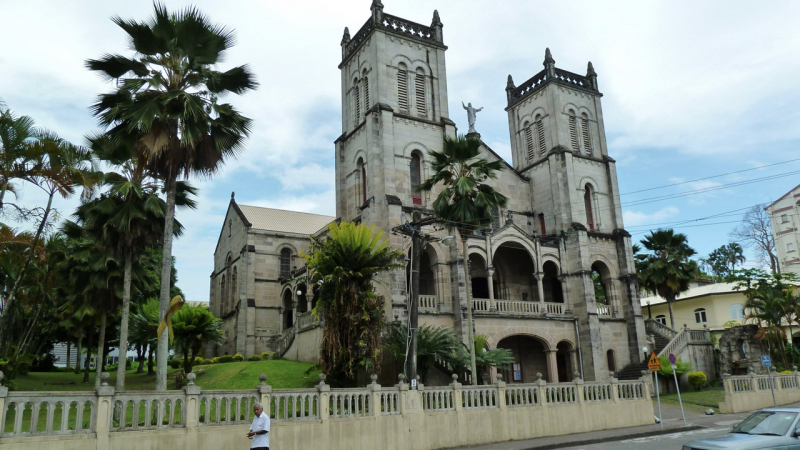
https://www.fbcnews.com.fj/ 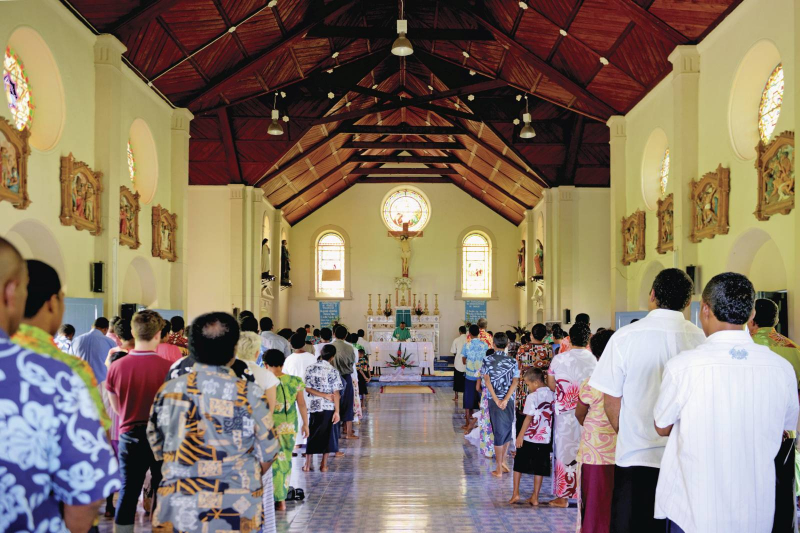
https://fijipocketguide.com/ -
Fijian culture revolves around family. It's no wonder, then, that Fiji is extremely family friendly. Free perks for families include one-on-one babysitter services for toddlers and "Bula Buddies." This is a country with peace, friendliness and hospitality. If you want a vacation to enjoy moments with family and loved ones, this is an ideal place.
Teens are frequently given a daily schedule of guided activities to choose from, such as canoeing, snorkeling, and hiking. Keeping kids busy, occupied, and safe during the day allows parents to relax by the pool, indulge in a spa treatment, or partake in activities without worry.
This Fiji family vacation offers lots of relaxing time as well as a variety of fun activities for the entire family.
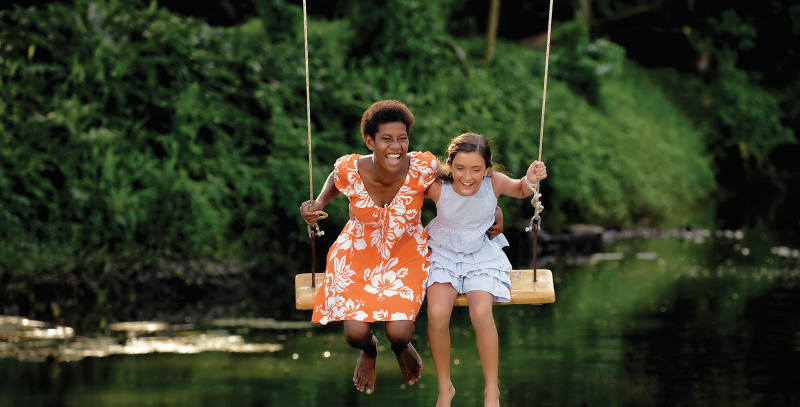
https://fijipocketguide.com/ 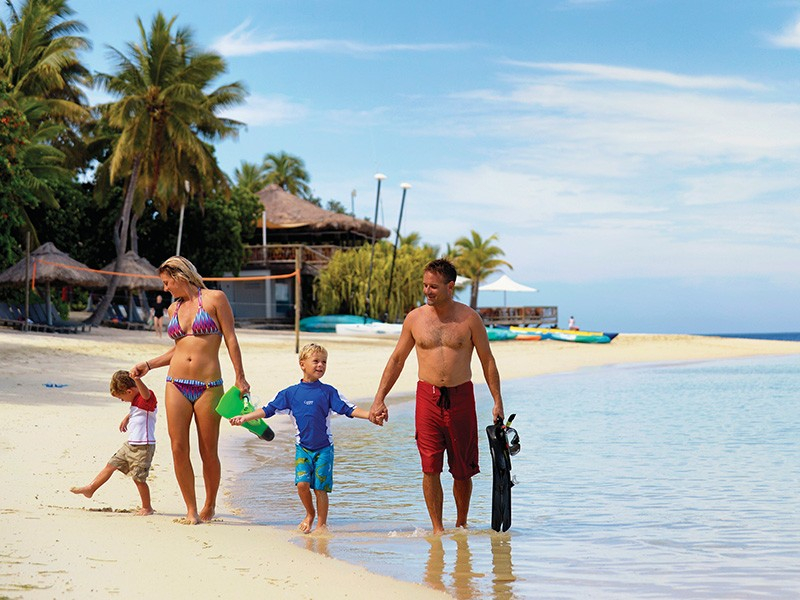
https://www.globalexplorer.com/ -
Both yes and no. Larger resorts on Viti Levu, such as Sofitel Fiji Resort & Spa and Shangri-Fijian La's Resort & Spa, have lower nightly prices (starting at roughly $169 per night), but guests must pay for food. Almost everything must be transported, with the exception of seafood, some vegetables, and tropical fruits.
Many private island resorts (which can cost anywhere from $400 to $1,000 per night) appear to be quite luxurious at first appearance, but this is because they're all-inclusive, which means that all meals and certain drinks are included in the nightly charge.
The most secluded resorts are generally the most pricey. The seaplane or helicopter transfer required to get there, which can cost up to $400 per person one way, adds to the costs. Budget properties that appeal to backpackers and some divers are the most cheap.
Check out Fiji Tourism's lodging guide for a complete list of resort options.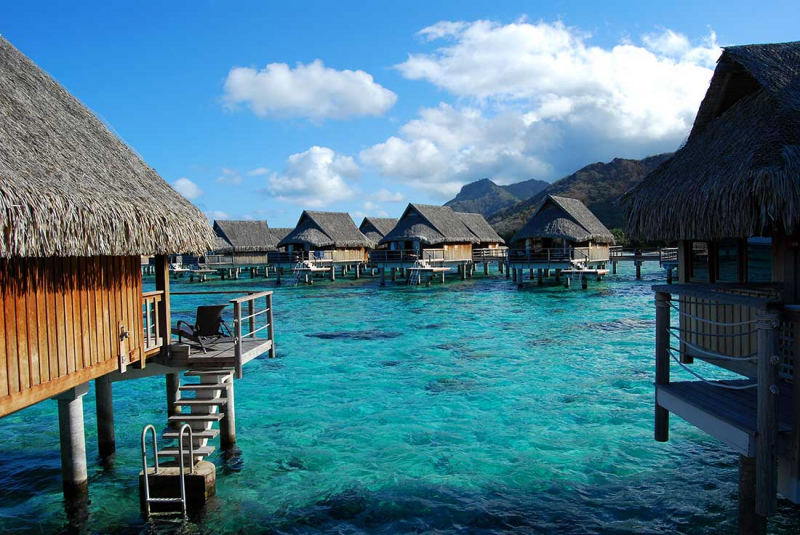
https://www.budgetyourtrip.com/ 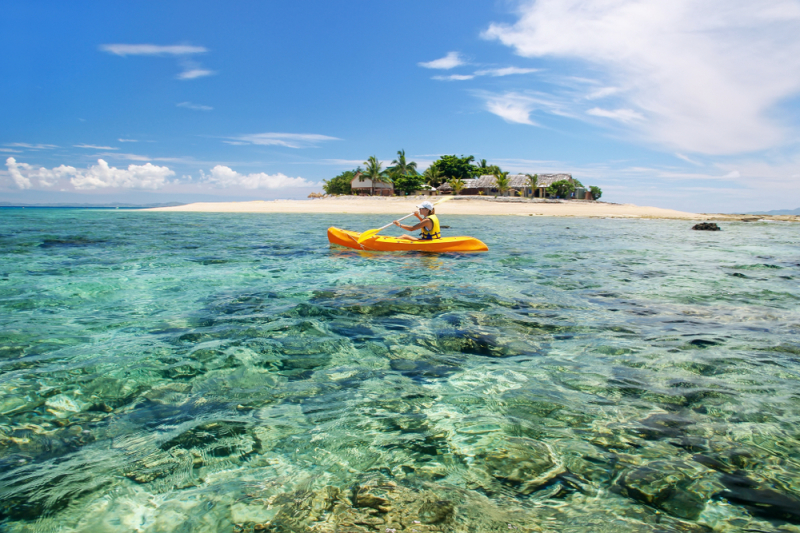
https://www.traveldailymedia.com/ -
Fijian cooking is traditionally done over an open fire or in an underground oven carved out of the earth and lined with banana leaves. The Lovo, or underground overcooking, is still practiced today and is an exciting cultural experience for all visitors to Fiji. Rice, sweet potato, cassava, fish, coconut, and taro are common foods in Fiji. Lovos are also used to prepare meat, chicken, and fish. Tropical and delicious fruits abound in Fiji, including sea grapes, pawpaw, banana, numerous melons, and, of course, pineapple and jackfruit!
Traditional Fijian produce contains a variety of distinctive delicacies. Rourou, a meal prepared from Dalo or Taro leaves cooked or stewed in coconut milk and served as a side dish with fish or poultry, is one of them.
Coconut bread, a staple, is referred to as the "tree of life" in Fiji and has been a component of the country's cuisine for thousands of years. Cassava is a distinctive Fijian delicacy that is used to make puddings and desserts. It is also known as tapioca or sago in other parts of the world. Fijian asparagus, or duruka, is used in curries and Lolo. Nama, also known as sea grapes or green grapes, are a type of caviar that grows in shallow waters and is served with chiles and lemon.
Taro is another Fijian delicacy. Taro, like potatoes and yams, is a root vegetable that is commemorated as Taro Day on the first full moon in May. Taro is also used in Palusami, a traditional Fijian meal that tastes like stewed spinach. Kava, a drink produced from yaqona and water, and Babakau, or fried bread, are two more unusual delicacies. Cawaki, or sea urchin, is an honorable consideration, as it is a popular delicacy today.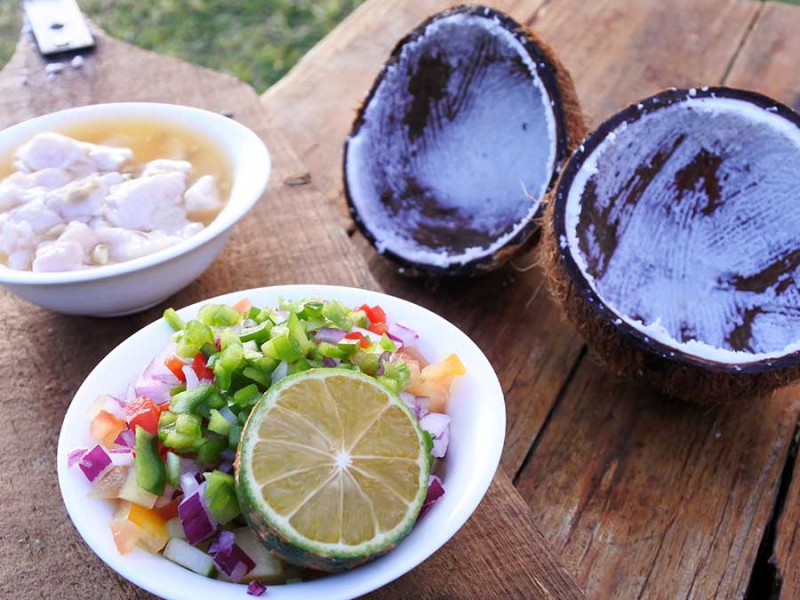
https://www.scti.co.nz/ 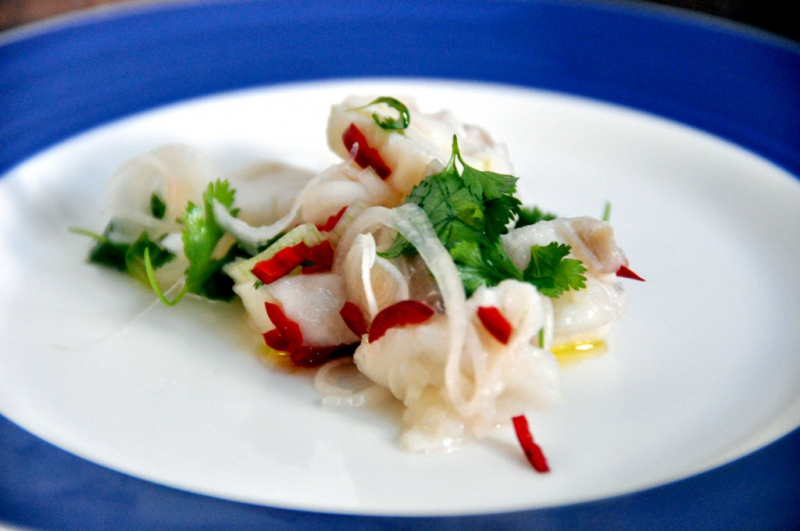
https://theculturetrip.com/ -
Every year in July or August, Nadi hosts a week-long Bula Festival. "Bula" is a greeting that signifies "welcome" or "hello." The event welcomes people who are interested in learning more about Fijian culture. It features a fantastic carnival with floats, music, and dancing. Furthermore, the Bula Festival donates 100% of its proceeds to charity.
The Bula Festival is a week-long celebration of wonderful food, traditional music, and competitions. Everything happens in Koroivolu Park and Prince Charles Park, which are both close to Nadi Market. The festival highlights Fiji's pluralism, including its Melanesian and Polynesian roots as well as Indian, Chinese, and European cultural influences. Don't miss out on the chance to see a Meke dance performed by indigenous people. Seasea is a female fan dance, and meke wesi is a male spear dance. A dance can tell a variety of stories, including those concerning wars, historical events, and personal tragedies. This dance is an important component of Fiji's cultural heritage.
The music of Fiji is highly diverse, having a lot of European and Asian influences. Some local musicians combine Fijian and English languages, as well as traditional and modern instruments, to create distinctive music.
Not only will you be able to learn about national traditions and customs, but you will also be able to sample authentic Fijian cuisine and participate in a variety of entertainment and games. Every evening, various shows and themed nights are held at the festive venues, including a yearly beauty pageant and the election of "Miss Bula."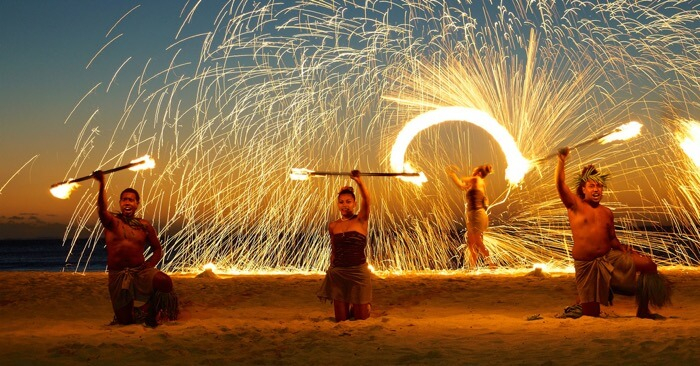
https://traveltriangle.com/ 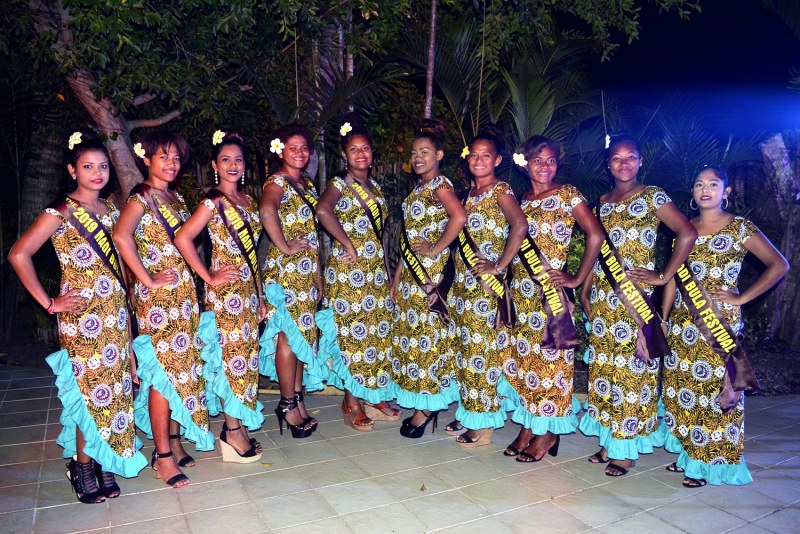
https://www.fijitimes.com.fj/ -
The greatest time to visit Fiji is when you have the opportunity. We're talking about Fiji here! Temperatures remain fairly consistent throughout the year, with highs in the 80s; nevertheless, tropical storms are possible from November to April. During this period, international visitors swarm to Fiji's islands during the dry season. Although the wet season is considered the off-peak season, many visitors still travel to Fiji between the months of November to April to experience everything that the islands have to offer.
The finest time to visit Fiji for the vacation you've always wanted is from July through September, but be prepared to pay exorbitant costs because this is also peak season. This is one of the things about Fiji you should know before visiting. Despite the fact that December is in the middle of the rainy season, the number of travelers increases around the holidays. The shoulder seasons are brief — May to June and October – but they're great times to come because the throng will have either dispersed or will not have arrived yet. If you want to see Fiji without the crowds, the ideal time to go is between February and April.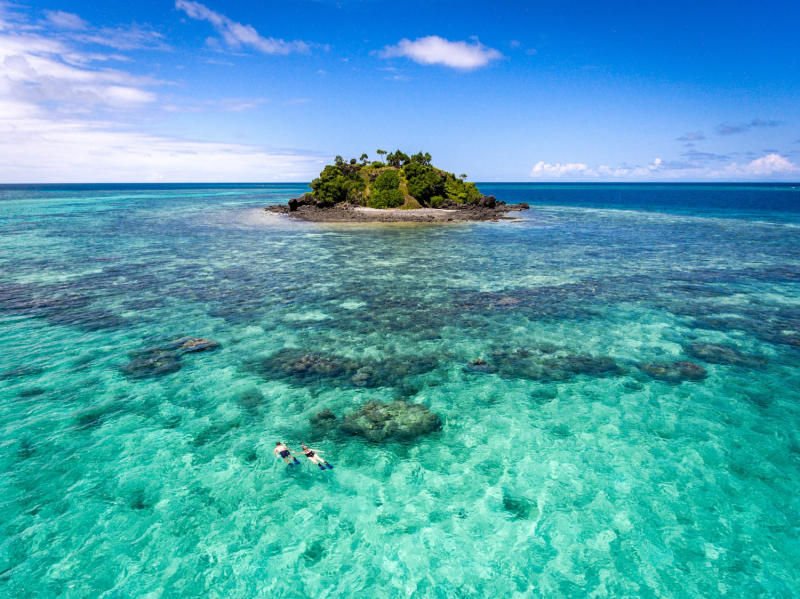
https://www.turtlefiji.com/ 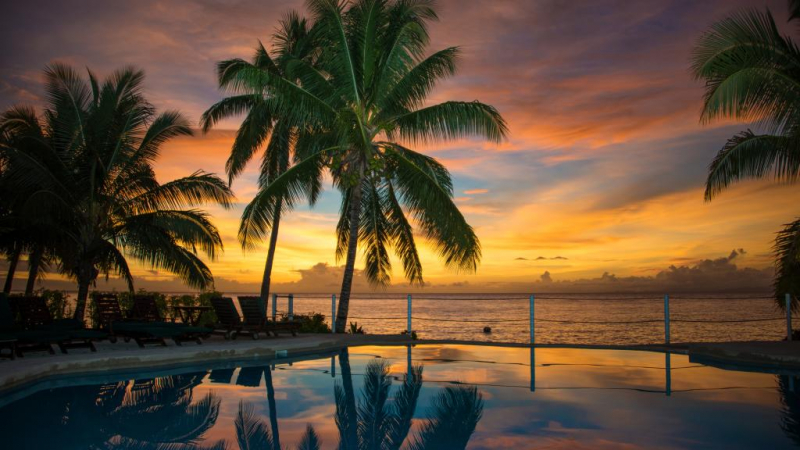
https://www.travelonline.com/
















